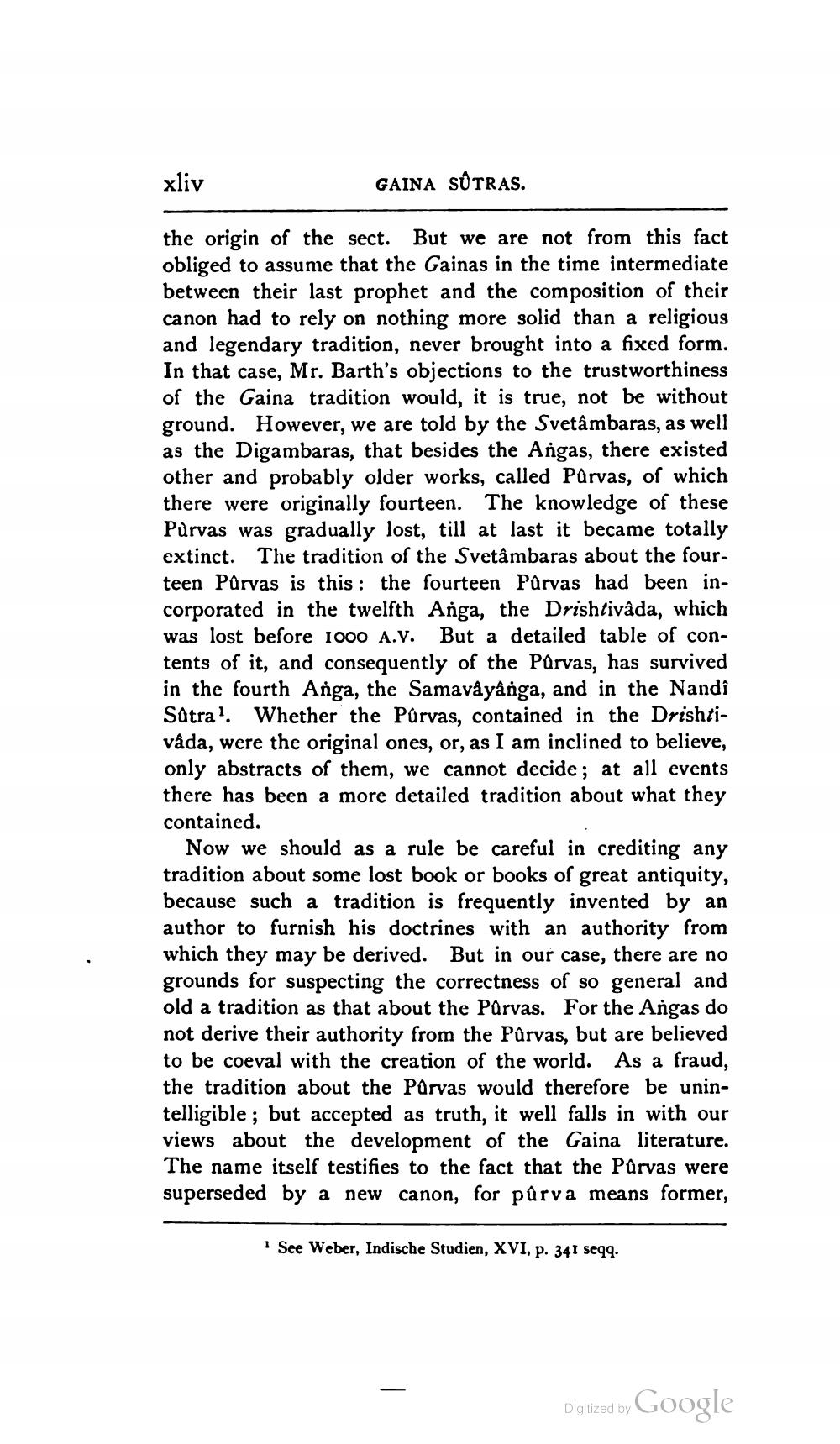________________
xliv
GAINA SÚTRAS.
the origin of the sect. But we are not from this fact obliged to assume that the Gainas in the time intermediate between their last prophet and the composition of their canon had to rely on nothing more solid than a religious and legendary tradition, never brought into a fixed form. In that case, Mr. Barth's objections to the trustworthiness of the Gaina tradition would, it is true, not be without ground. However, we are told by the Svetâmbaras, as well as the Digambaras, that besides the Angas, there existed other and probably older works, called Parvas, of which there were originally fourteen. The knowledge of these Purvas was gradually lost, till at last it became totally extinct. The tradition of the Svetâmbaras about the fourteen Parvas is this: the fourteen Parvas had been incorporated in the twelfth Anga, the Drishtivada, which was lost before 1000 A.V. But a detailed table of contents of it, and consequently of the Parvas, has survived in the fourth Anga, the Samavâyânga, and in the Nandi Satra'. Whether the Purvas, contained in the Drishtivâda, were the original ones, or, as I am inclined to believe, only abstracts of them, we cannot decide; at all events there has been a more detailed tradition about what they contained.
Now we should as a rule be careful in crediting any tradition about some lost book or books of great antiquity, because such a tradition is frequently invented by an author to furnish his doctrines with an authority from which they may be derived. But in our case, there are no grounds for suspecting the correctness of so general and old a tradition as that about the Parvas. For the Argas do not derive their authority from the Parvas, but are believed to be coeval with the creation of the world. As a fraud, the tradition about the Purvas would therefore be unintelligible; but accepted as truth, it well falls in with our views about the development of the Gaina literature. The name itself testifies to the fact that the Purvas were superseded by a new canon, for purva means former,
See Weber, Indische Studien, XVI, p. 341 seqq.
Digitized by Google




